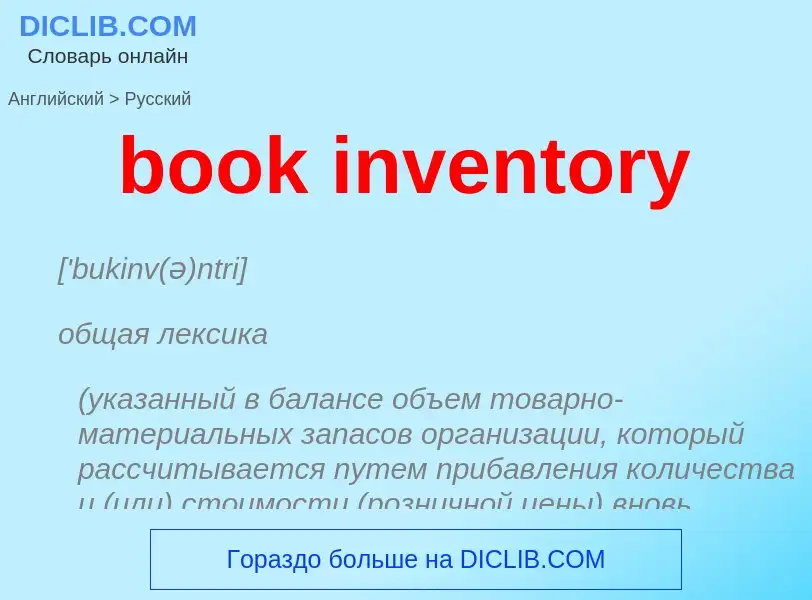Traducción y análisis de palabras por inteligencia artificial ChatGPT
En esta página puede obtener un análisis detallado de una palabra o frase, producido utilizando la mejor tecnología de inteligencia artificial hasta la fecha:
- cómo se usa la palabra
- frecuencia de uso
- se utiliza con más frecuencia en el habla oral o escrita
- opciones de traducción
- ejemplos de uso (varias frases con traducción)
- etimología
book inventory - traducción al ruso
['bukinv(ə)ntri]
общая лексика
(указанный в балансе объем товарно-материальных запасов организации, который рассчитывается путем прибавления количества и (или) стоимости (розничной цены) вновь приобретенных запасов к уже существующим запасам и вычитания количества и (или) стоимости (розничной цены) уходящих запасов из существующих запасов)
инвентарный учёт товарно-материальных запасов
учётные товарно-материальные запасы
стоимость таких запасов по бухгалтерской книге
бухгалтерский учет
книжный [учетный] запас
2) стоимость материально-производственных запасов по бухгалтерской книге
3) pl учётные (товарно-)материальные запасы
Смотрите также
Definición
Wikipedia
Vendor-managed inventory (VMI) is an inventory management practice in which a supplier of goods, usually the manufacturer, is responsible for optimizing the inventory held by a distributor.
Under VMI, the retailer shares their inventory data with a vendor (sometimes called supplier) such that the vendor is the decision-maker who determines the order size, whereas in traditional inventory management, the retailer (sometimes called distributor or buyer) makes his or her own decisions regarding the order size. Thus, the vendor is responsible for the retailer's ordering cost, while the retailer usually acquires ownership of the stock and has to pay for their own holding cost. One supply chain management glossary identifies VMI as
The practice of retailers making suppliers responsible for determining order size and timing, usually based on receipt of retail POS and inventory data.
although a 2008 article notes that there is no standard definition of VMI and the term's usage varies "significantly" among companies supporting VMI processes.
A third-party logistics provider may also be involved to help ensure that the buyer has the required level of inventory by adjusting the demand and supply gaps.

